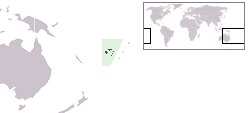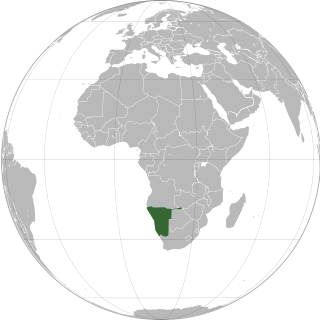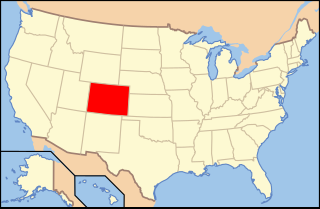Related Research Articles
This is a list of notable events in the history of LGBT rights that took place in the year 1998.
This is a list of notable events in the history of LGBT rights that took place in the year 1993.
This is a list of notable events in the history of LGBT rights that took place in the year 1999.
This is a list of notable events in the history of LGBT rights that took place in the year 1995.
This is a list of notable events in the history of LGBT rights that took place in the year 2005.

Lesbian, gay, bisexual, and transgender (LGBT) rights in Fiji have evolved rapidly over the years. In 1997, Fiji became the second country in the world after South Africa to explicitly protect against discrimination based on sexual orientation in its Constitution. In 2009, the Constitution was abolished. The new Constitution, promulgated in September 2013, bans discrimination based on sexual orientation and gender identity or expression. However, same-sex marriage remains banned in Fiji and reports of societal discrimination and bullying are not uncommon.

Lesbian, gay, bisexual, and transgender (LGBT) rights in the United States are among the most advanced in the world, with public opinion and jurisprudence changing significantly since the late 1980s.

Lesbian, gay, bisexual, and transgender (LGBT) people in Kenya face significant challenges not experienced by non-LGBTQ residents. Sodomy is a felony per Section 162 of the Kenyan Penal Code, punishable by 21 years' imprisonment, and any sexual practices are a felony under section 165 of the same statute, punishable by five years' imprisonment. On 24 May 2019, the High Court of Kenya refused an order to declare sections 162 and 165 unconstitutional. The state does not recognise any relationships between persons of the same sex; same-sex marriage is banned under the Kenyan Constitution since 2010. There are no explicit protections against discrimination on the basis of sexual orientation and gender identity. Adoption is restricted to heterosexual couples only.

Lesbian, gay, bisexual, and transgender (LGBT) people in Botswana face legal issues not experienced by non-LGBTQ citizens. Both female and male same-sex sexual acts have been legal in Botswana since 11 June 2019 after a unanimous ruling by the High Court of Botswana. Despite an appeal by the government, the ruling was upheld by the Botswana Court of Appeal on 29 November 2021.

Lesbian, gay, bisexual, and transgender (LGBT) people in Trinidad and Tobago face legal challenges not experienced by non-LGBTQ residents. Households headed by same-sex couples are not eligible for the same rights and benefits as that of opposite-sex couples.

Lesbian, gay, bisexual, and transgender (LGBT) rights in Namibia have expanded in the 21st century, although LGBT people still have limited legal protections. Namibia's colonial-era laws criminalising male homosexuality were historically unenforced, and were overturned by the country's High Court in 2024.

National Coalition for Gay and Lesbian Equality and Another v Minister of Justice and Others is a decision of the Constitutional Court of South Africa which struck down the laws prohibiting consensual sexual activities between men. Basing its decision on the Bill of Rights in the Constitution – and in particular its explicit prohibition of discrimination based on sexual orientation – the court unanimously ruled that the crime of sodomy, as well as various other related provisions of the criminal law, were unconstitutional and therefore invalid.

A sodomy law is a law that defines certain sexual acts as crimes. The precise sexual acts meant by the term sodomy are rarely spelled out in the law, but are typically understood and defined by many courts and jurisdictions to include any or all forms of sexual acts that are illegal, illicit, unlawful, unnatural and immoral. Sodomy typically includes anal sex, oral sex, manual sex, and bestiality. In practice, sodomy laws have rarely been enforced to target against sexual activities between individuals of the opposite sex, and have mostly been used to target against sexual activities between individuals of the same sex.

Lesbian, gay, bisexual, and transgender (LGBTQ) persons in Belize face legal challenges not experienced by non-LGBT citizens, although attitudes have been changing in recent years. Same-sex sexual activity was decriminalized in Belize in 2016, when the Supreme Court declared Belize's anti-sodomy law unconstitutional. Belize's constitution prohibits discrimination on the basis of sex, which Belizean courts have interpreted to include sexual orientation.

Lesbian, gay, bisexual, transgender, and queer (LGBTQ) people in the U.S. state of Colorado enjoy the same rights as non-LGBTQ people. Same-sex sexual activity has been legal in Colorado since 1972. Same-sex marriage has been recognized since October 2014, and the state enacted civil unions in 2013, which provide some of the rights and benefits of marriage. State law also prohibits discrimination on account of sexual orientation and gender identity in employment, housing and public accommodations and the use of conversion therapy on minors. In July 2020, Colorado became the 11th US state to abolish the gay panic defense.
This article gives a broad overview of lesbian, gay, bisexual and transgender (LGBT) history in Canada. LGBT activity was considered a crime from the colonial period in Canada until 1969, when Bill C-150 was passed into law. However, there is still discrimination despite anti-discrimination law. For a more detailed listing of individual incidents in Canadian LGBT history, see also Timeline of LGBT history in Canada.
Sexual encounters in private between two adults are legal. Although homosexuality was decriminalized, LGBT Dominicans still endure discrimination and violence due to their sexual orientation and/or gender identity. In a 2014 poll, almost three quarters, 73%, of people in the Dominican Republic alone have said that members of the LGBT community have experienced some sort of violence or discrimination. Members of the LGBT Community in the Dominican Republic are victims of hate crimes, extortion by the police, and discrimination when it comes to resources and employment services. They also face discrimination when seeking treatment from health care systems. Between 2006 and August 2015, there have been 32 reports of possible hate crimes against transgender people.:5
This is a timeline of notable events in the history of non-heterosexual conforming people of African ancestry, who may identify as LGBTIQGNC, men who have sex with men, or related culturally specific identities. This timeline includes events both in Africa, the Americas and Europe and in the global African diaspora, as the histories are very deeply linked.

The following is a timeline of lesbian, gay, bisexual, and transgender (LGBT) history in the 20th century.
This is a list of notable events in LGBT rights that took place in the 2010s.
References
- ↑ Emily Rauhala (June 15, 2009). "Gay pride in China? Yes and no". GlobalPost . Retrieved May 22, 2012.
- ↑ Staff writer (November 3, 2009). "Fijians fighting for equal rights". Sydney Star Observer . Retrieved May 22, 2012.
- ↑ Emmet Meara (May 27, 1999). "Gay Alliance seeks 2000 vote on discrimination". Sun Journal . Retrieved May 22, 2012.
- ↑ Staff writer (June 9, 1997). "American Topics". International Herald Tribune . Archived from the original on March 16, 2016. Retrieved May 22, 2012.
- ↑ Rachel Shatto (November 1, 2008). "Ellen through the ages: a chronicle of her rise to fame and lesbo fortune". Curve . Archived from the original on February 28, 2011. Retrieved May 22, 2012.
- ↑ Abel v. United States of America,94CV0974( United States District Court for the Eastern District of New York 1997-07-02).
- ↑ Lyle Denniston (July 3, 1997). "Judge rejects policy on gays; Military's 'don't ask, don't tell' is ruled unconstitutional". The Baltimore Sun . Retrieved May 22, 2012.
- ↑ Department of Citizenship and Immigration Canada (April 17, 2012). "Applying for permanent residence from within Canada: Spouse or common-law partner in Canada class (IMM 5289)" . Retrieved May 23, 2012.
- ↑ Mario Gonzalez (July 24, 1997). "Ecuador-Rights: Homosexuals Fight For Decriminalization". Inter Press Service . Archived from the original on March 7, 2016. Retrieved May 23, 2012.
- ↑ Michael Graczyk (January 4, 2010). "Houston mayor calls swearing-in milestone for gays". The Seattle Times . Retrieved May 23, 2012.
- ↑ Ben Wattenburg (December 17, 1997). "Don't dis Washington, D.C." The Daily News . Retrieved May 23, 2012.
- ↑ Ph.D, David E. Newton (2009-10-27). Gay and Lesbian Rights: A Reference Handbook, 2nd Edition: A Reference Handbook, Second Edition. ABC-CLIO. ISBN 9781598843071.
- ↑ James R. Edwards Jr. (May 1999). "Homosexuals and Immigration: Developments in the United States and Abroad". Center for Immigration Studies . Retrieved May 23, 2012.
- ↑ Ronald Smothers (December 18, 1997). "Accord Lets Gay Couples Adopt Jointly". The New York Times . Retrieved May 23, 2012.